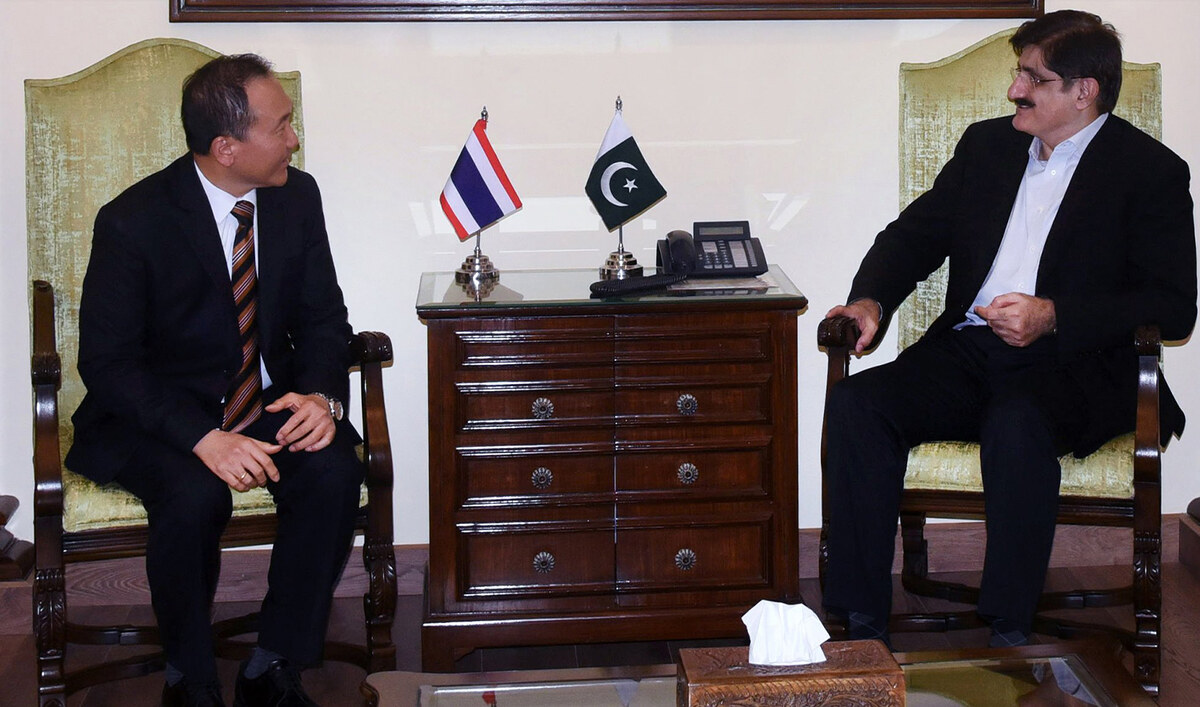ISLAMABAD: The chief minister of Pakistan’s Sindh this week invited the envoys of Qatar and Thailand to explore investment opportunities in the province, as Islamabad attempts to attract increased foreign investment to remedy its economic woes.
Pakistan has forged closer trade, investment, and economic ties with regional allies as it seeks to escape an economic crisis that has drained its resources and weakened its currency significantly over the past two years.
Chief Minister Sindh Syed Murad Ali Shah met the consul generals of Thailand and Qatar on Friday in separate meetings in the provincial capital of Karachi, ensuring them of the Sindh government’s full support to them in matters related to investment.
“Sindh Chief Minister Syed Murad Ali Shah has invited the investors of Thailand and Qatar to take advantage of the several investment opportunities in the province,” state broadcaster Radio Pakistan reported on Friday.

Chief Minister Sindh Syed Murad Ali Shah (right) meets with Consul Generals of Thailand, Surashete Boontinand, at CM House in Karachi, Pakistan, on December 13, 2024. (@SindhCMHouse/X)
During his meeting with Qatar Consul General Naif Shaheen Al-Sulaiti, Shah discussed various investment opportunities present in Sindh and invited the Qatar Investment Authority to invest in Sindh, the state broadcaster said.
Pakistan’s Prime Minister Shehbaz Sharif visited Qatar in October as he sought to bolster economic cooperation amid the country’s efforts to boost foreign investment and stabilize its frail $350 billion economy.
In November, Sindh Governor Kamran Tessori met Qatari’s Ambassador to Pakistan Ali Mubarak Ali Essa Al-Khater to discuss ways to enhance investment and improve bilateral ties between the two countries.

















